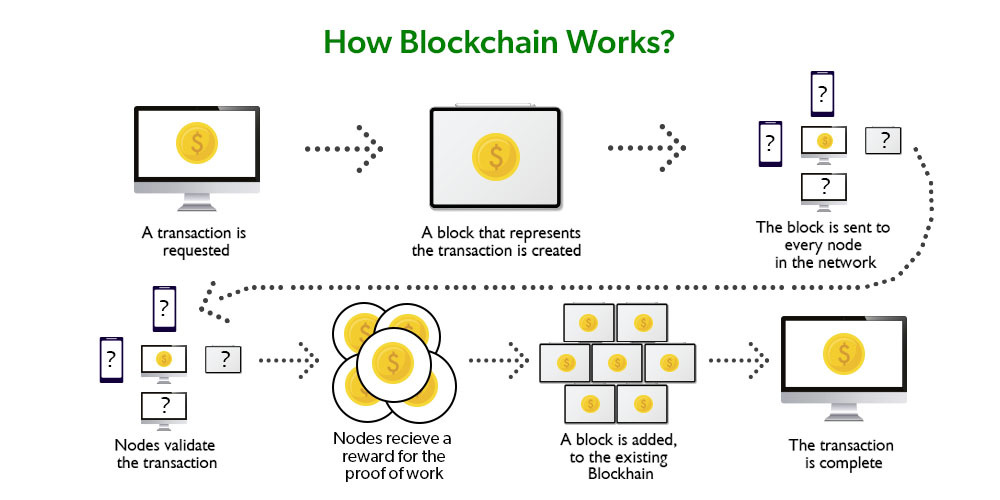What Is Blockchain Technology?
Blockchain is fundamentally a distributed, decentralized ledger technology. Let us take for example, a digital ledger, or record book, that is not centralized but distributed or shared among a network of computers (nodes). furthermore, This ledger keep records of data or transactions in a visible, safe, and in a way it cannot be tampered with or change any recorded transaction.

How Does Blockchain Work?
Decentralization
Blockchain shares each copies of its ledger to all users in the network. In contrast to our traditional centralized systems where all data is stored in a centralized or one place. Decentralization makes sure that each user has control over his own system. It makes sure that no single user has control, on the over-all system.
Blocks And Chains
From the word “blockchain” signifies how Transactions is structured and organized. Transactions are classified into blocks, where each transaction consists of list of records. These blocks are connected in a chronological order which fundamentally creates a structure that forms “chains” of blocks.
Security Through Cryptography
Each individual block in the chain consist of a cryptographic hash (equation used to verify the validity of data. It has many applications, notably in information security e.g. user authentication) of the former block, alongside with the new data or transaction record. This linkage and cryptographic hashing ensures there is no alteration in a data in a block without changing the linked previous blocks. This encourages integrity of the whole blockchain.
Life Examples Of Blockchain
Cryptocurrencies
Bitcoin and other crypto currencies make use of blockchain to keep record of transaction or data in a safe and transparent way, which encourages not the use of a centralized organizations like a bank.
Supply Chain Management
individuals use blockchain to monitor the movement of products from the producer to the consumers, making sure there is integrity and theft reduction by keeping records of each transaction and change of ownership.
Smart Contracts
This are contracts that initiates or executes on its own with the terms of agreement which are written in codes directly. However, Blockchain activates these contracts to be executed automatically, only when predefined conditions are met. This encourages the removal of a mediator.
How People Can Use Blockchain / Application
Financial transaction
Users make use of blockchain to send and receive money worldwide (for example Bitcoin). Which encourages reduction in cost, transaction time, secured transaction, unlike our normal banking systems.
Digital Identity
One of the major benefits of blockchain is that it hides, secures and shields your identity. Minimize identity theft and reduces the time complexity of verification processes.
Voting Systems
It encourages transparency and protects the voting processes, by keeping track and record of individual vote which prevents vote alteration or a vote been changed.
Supply Chain Verification
Individuals make use of blockchain to check the originality and source of a product. Making sure there is ethical sourcing (This includes companies actively upholding labor rights, safe working conditions, business ethics and more as they purchase products from suppliers.) and quality assurance.
Conclusion
Blockchain technology non-centralized, transparent, efficient and secure features can help business sectors of managing data and transactions. As the world evolve businesses will be able to survive in the digital economy due to its secure nature of transactions. Blockchain has a strong hold beyond the application in cryptocurrencies(digital currency, which is an alternative form of payment created using encryption algorithms ).
